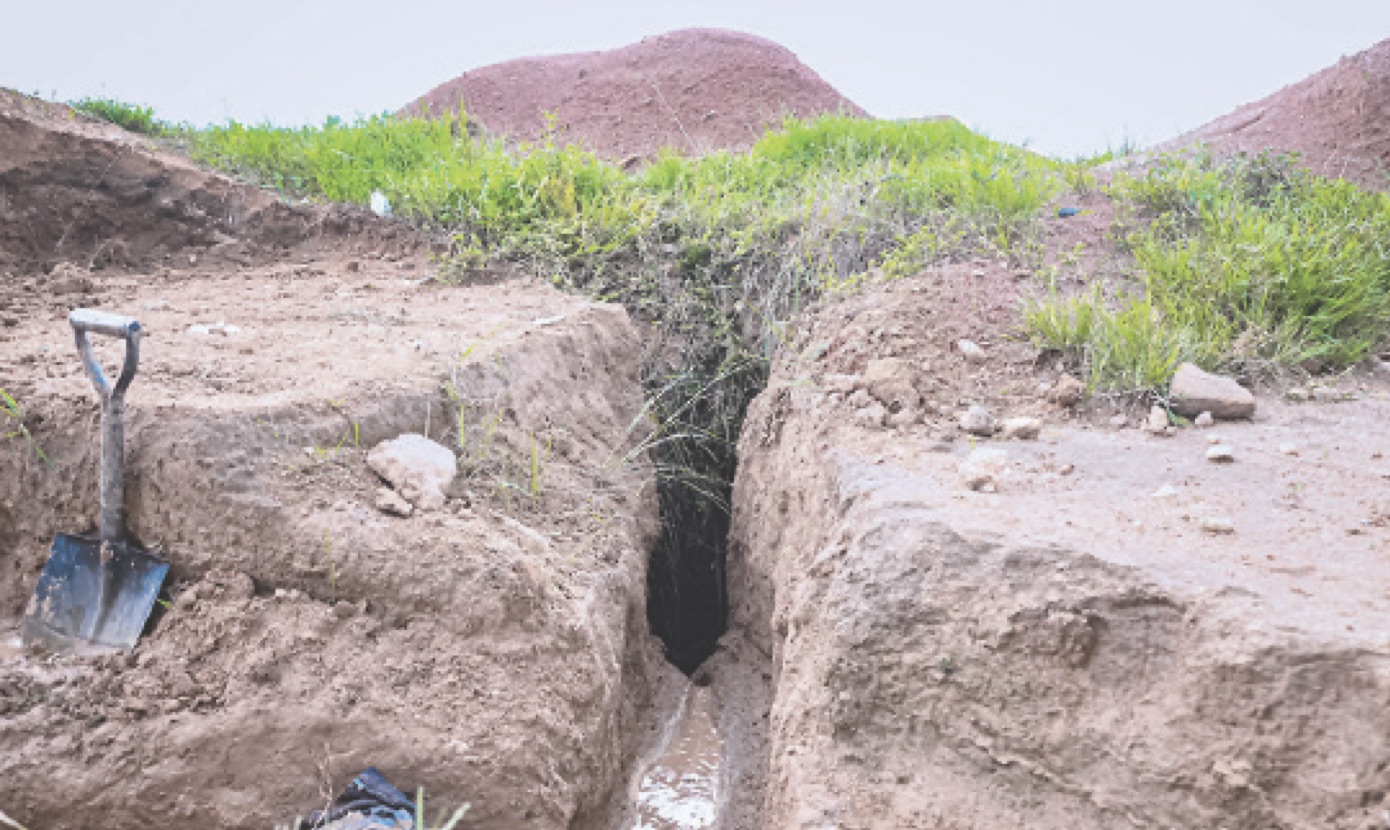• Seeking to recover destroyed farmlands, posing as death traps in host communities
By Henry Umahi
At least 13 persons were buried alive not long ago in a collapsed mining site in Bassa Local Government Area of Plateau State. The unfortunate development was confirmed by the chairman of the LGA, Dr Joshua Riti, who expressed deep sadness over the number of persons that perished.

It was gathered that most of the victims were youths between 18 and 30 while the collapsed mining site is located at the boundaries between Bassa, Jos South and Jos North LGAs.
Among the dead was Akubaka Sunday, a 27-year-old final year student of Civil Engineering from University of Jos. When Akubaka’s body was brought home, his mother fainted and it took the intervention of other women to revive her. His father, Ayiki Sunday, said: “I am now living with the reality that all my hope is gone. Indeed, my life is gone.” He was the only son of the family.

Among the victims was a 28-year-old youth corps member, Danjuma Azis. A native of Bassa, he was doing his NYSC programme in Gombe State.
Riti said: “This is an unfortunate incident. These young people were only out in search of a means of livelihood.


“They went out to put their energies to good use to sustain and meet up with the current economic hardship in the country but met their untimely death.
“I wish to extend my deepest condolences to the families and loved ones affected by this tragedy.”
Reacting through its executive director, Philip Jakpor, Renevlyn Development Initiative (RDI) said: “The incident in Plateau State shows that the entire architecture of oversight on mining operations needs to be interrogated and overhauled to halt the deaths of young Nigerians.
“The mining deaths are avoidable and unacceptable. Now is the time for the government to identify and hold the illegal mine operators accountable for not only fleecing the nation and ruining our environment, but also killing our people. Anything short of this is a time bomb waiting to explode.”
Indeed, tin mining has destroyed several farmlands in Plateau State. The state is believed to have the highest mining ponds, over 1,500 of them, which have become death traps in the host communities.
However, Gov. Caleb Mutfwang is determined not only to recover the mining ponds in the state but also put them into agricultural use, among others.
Over the years, tin mining activities had created adverse conditions in Plateau. These resulted in the alienation and destruction of farmlands, environmental degradation, diversion of labour from food production, and, of course, predictably, shortage of food.’
Today, scattered all over several communities in Plateau are mining ponds of different proportions and no less varied dimensions and implications, all as unwavering aftermath of such mining activities.
They are a daily reminder of the sad memories of what should have turned the fortunes of the state and the people around. Rather they have become death traps for the young and old, and a painful reminder and provocation of the sentiments that today form part of the national discourse and lend subject matter to the agitation for the principle of derivation – and even calls for fiscal federalism.
It is on account of the above that Mutfwang solicited the Federal Government’s intervention through the utilization of available ecological funds to reclaim these mining ponds. As long as they are not reclaimed, they will continue to be dangerous to the living. They can be turned into sources of businesses like fishing or irrigation farming.
In his quest to change the narrative, Mutfwang visited the Minister of Solid Minerals Development, Dele Alake, and lamented that the state has been left to deal with the devastating environmental impacts of mining, which have degenerated into death traps for host communities and visiting tourists.
The governor said: “We are hopeful that by leveraging our partnership with the ministry of solid minerals Development, we can secure Federal Government interventions through ecological funds to remediate these hazardous sites.
“Remedying these mining ponds is not only vital for public health but also holds the potential for significant economic benefits. Plateau State plays a crucial role in strengthening the national food basket and has the potential to turn agriculture into a foreign exchange earner. Hence, the reclamation of these sites is essential.”
Meanwhile, the state has set up the Mineral Resources and Environmental Management Committee (MIREMCO) headed by Prof. Stephen Malo. The Plateau Mineral Development Company is taking advantage of playing a purveying and pivotal role in the sector, and guiding investors on their investment plans.
The Director of Press and Public Affairs to Gov. Mutfwang, Dr Gyang Bere, disclosed that “to make a success of the sector, efforts are being made to develop the down-stream sector as the state gets set for daily marketing and trading of solid minerals. It is possible to develop a capital base for the state’s investment in this invaluable and time-honoured economic gold-mine.”

